|
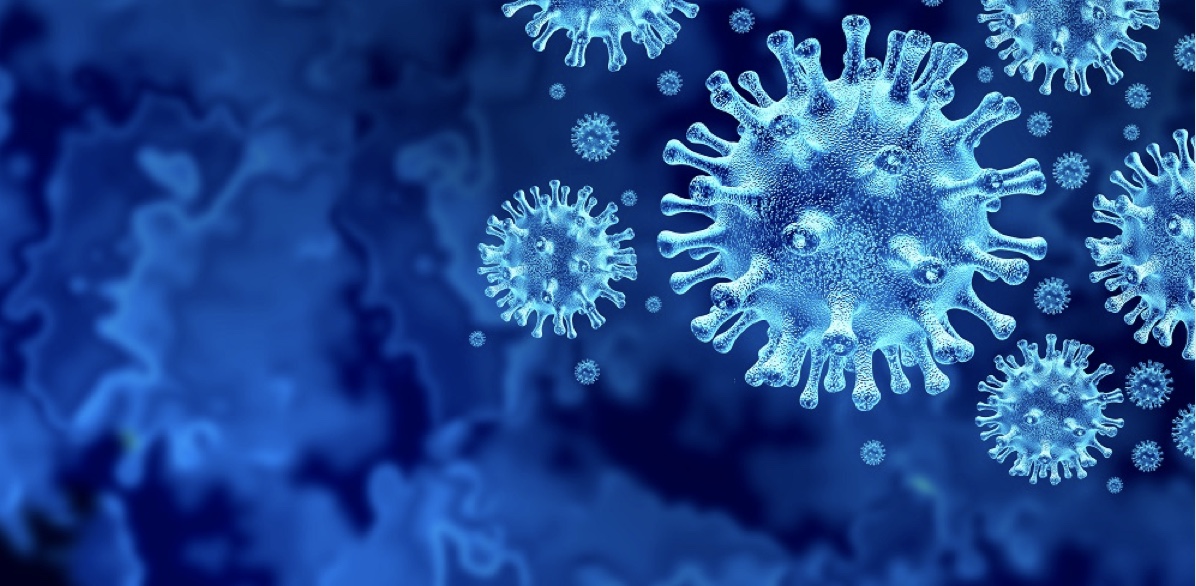
The COVID-19 virus as seen under a microscope. Dr. Caren and Dr. Urman's Heart Health e-Newsletter The latest from Drs Urman and Caren regarding the coronavirus pandemic as well as staying heart healthy This complimentary monthly educational service is for our patients and their families but please forward it to anyone who might find it of interest. It usually is sent out the first Friday of each month but for April 2020 was delayed a few days to have the latest updated information on the COVID-19 pandemic after we had 2 extra special editions in the past few weeks regarding COVID-19. Click here to enter our website and learn more about our practice. We encourage you to contact us if you have any questions or wish to make an appointment.
Dear patients and friends,
We sincerely hope you and your families are staying safe and healthy during this most challenging and unprecedented time. On behalf of everyone at COR Medical Group, please know that our thoughts are with you and your loved ones, and with all who have been affected by the coronavirus (COVID-19) pandemic. As health care providers, there is nothing more important to us than the well-being of our patients. This situation is totally unprecedented and so very challenging for all of us. Yet it is an opportunity for us to connect (perhaps only virtually) to each other more than ever before. Let us be smart and not panic and rise to the occasion to help each other out to get through all of this together. And get through it, we will. As we did in our last two special editions of our e-newsletter below are some frequently asked questions (FAQ’s). First are questions pertinent to your care with your cardiologist and updated office policies during this challenging time. Some of this has been updated since last week's special edition newsletter. Subsequently there are general questions and answers that have been updated and then there are the latest relevant cardiac and coronavirus news stories. [Author’s note: This e-newsletter was written on Sunday, April 5, 2020. The subject matter is rapidly changing, and the recommendations below may be out of date within a few days. Find the latest general recommendations from the LA County Dept of Public Health and the Centers for Disease Control by clicking on the links.] Is your office open? Yes, we are open with limited hours. However, we are seeing only urgent appointments in the office that cannot be handled by other means. We are handling everything else by phone or virtual / telemedicine (more below). We are here for you. However, we have limited staff to help reduce risk of exposure for you, our staff and the community at large. Some of our staff have been set up to provide service from home as they are able to do. Are you performing cardiac testing? Only if absolutely necessary and felt to be urgent. All elective testing has been put on hold for the safety of everyone. Arrangements for lab tests that are not felt to be able to be postponed will be handled on an individual basis. Please call our office to discuss if you have any questions or concerns. Should I cancel my upcoming appointment? You should call us and change it to a virtual visit or telemedicine visit, if at all possible. We are encouraging our patients to stay safe at home and take advantage of technology to continue their medical care. While in individual cases, our physicians might feel that some patients might be better served in person here in the office, for the foreseeable future the majority of visits can and will be done virtually until the coronavirus epidemic is behind us. This is for your safety as well as ours (and the whole community’s). How can I arrange a virtual visit?
Click here for more information. However, feel free to call our office and as we have done more of these virtual visits, both our patients and doctors have found them to be quite helpful, reassuring and important in this challenging time. Some patients wonder why some issues cannot be handled just by a phone call. However, a virtual visit, while not quite as ideal as an in-person visit, allows your doctor to "lay eyes on you" which can be worth a lot and, in our experience, allows for a better interpersonal connection. Also it allows a more complete review of your medical situation and assessment by the doctor. These visits are covered by Medicare and likely will be increasingly covered by private insurance. Can I Take an EKG on Myself at Home? Yes, well not a full 12-lead EKG but a rhythym strip EKG. Click Here to read more. 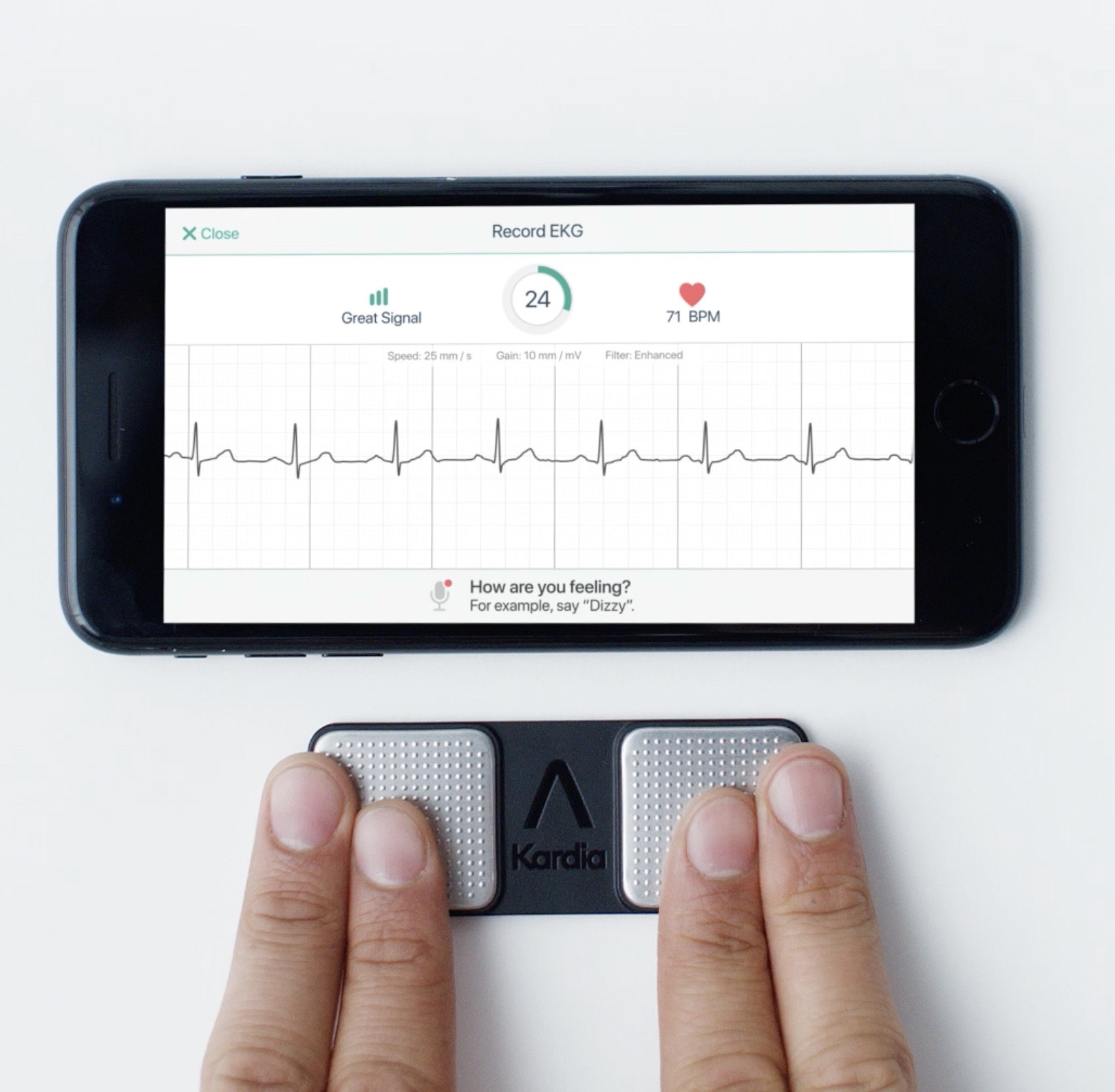 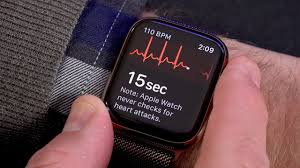
When will this all end? “It's tough to make predictions, especially about the future.”― Yogi Berra Realistically, the current state of affairs of social distancing, staying at home except for essential errands and safe exercise will last a minimum of another month, likely longer. Another unknown, will be when things finally appear to be improving, how will we safely be able to get back to normalcy. Part of how things might be handled will be based on the availability of SARS CoV-2 antibody testing which is being worked on and hopefully will be available in the near future. Am I really still supposed to stay home and avoid non-essential car trips? Yes. As you are likely well aware, not only the city and county of Los Angeles, City of Beverly Hills and State of California but also the Federal US government have ordered all residents to stay at home to help limit the spread of COVID-19 except for essential trips such as for food and supplies, medical visits that cannot be performed via telemedicine and perhaps for safe walks as below. Click here for details. Can I go outside for a walk? In fact, yes and that is what we are recommending to stay active. Daily exercise will help keep you in shape physically, mentally and psychologically. Just stay at least 6 feet away from others and wear a mask that covers your mouth and nose. If you are able to do other safe exercise in a safe environment, by all means, do so.
 | As long as you exercise caution while exercising outdoors |
Should I wear a mask?
Yes. Certainly when running essential errand such as going to the grocery store. Wearing a mask does not replace social distancing or washing one's hands frequently. So it is an addictive recommendation and not a substitute. Non-medical cloth face coverings should suffice and certainly have to given the shortage of medical masks even for first responders and health-care workers let alone everyone else. If the mask helps remind you to not touch your face, it will potentially be more helpful but if you end up touching your face to adjust the mask it might defeat the benefit. So it is still important to note: DO NOT TOUCH YOUR FACE and DO WASH YOUR HANDS FREQUENTLY. Learn more about face coverings here. Read about making your own cloth face covering here. Should I wear gloves? This is less certain. If done properly, it can be potentially helpful but a few caveats are important. After wearing gloves for any significant period of time, the gloves will be coated with the same germs, including potentially viruses such as SARS-CoV-2 as would get on your hands. So if when wearing the gloves, you end up touching your face with the gloves, you will totally defeat the purpose and benefit. Likewise, if you do not remove the gloves properly (that is you do not touch the outside of either glove with your bare skin), you will defeat the purpose. Click here for a CDC poster on how to properly remove gloves. What do I do if I was exposed to someone with COVID-19? COVID-19 patients are considered infectious 48 hours before symptoms begin. If you have had close contact with a person diagnosed with COVID-19, you must quarantine for 14 days. Learn more about quarantine guidelines here.
If you are presumed to have COVID-19, follow home isolation guidelines. This means staying home for at least 72 hours once you are symptom-free, notify all close contacts, and do not leave the house except for medical appointments.
For everyone else, continue practicing social distancing, stay 6 feet apart during essential trips, and wear a mask in public What is the difference between COVID-19 and SARS-CoV-2? SARS-CoV-2 is the name of the virus (a type of coronavirus) that causes the illness known as COVID-19. Click here for the Wall Street Journal article: Coronavirus Glossary: Key Terms You Need to Know Should I get tested for COVID-19? How can I get tested for coronavirus? As of today, the options are somewhat improving but still remain limited as there still is a serious shortage of COVID-19 tests. The City of Los Angeles is offering very limited testing to people in the following groups: - Those with symptoms who are age 65 and older
- Those with symptoms who have underlying chronic health conditions (including diabetes, heart disease, hypertension, chronic lung disease, moderate to severe asthma, people who are immunocompromised including as a result of cancer treatment
- Those who are subject to a mandatory 14-day quarantine period due to a confirmed COVID-19 exposure with more than 7 days of quarantine remaining
Testing is only available by appointment through the website link above and the lines have been quite long. Other than for patients in ICU's, the LA County Department of Health is only offering tests for healthcare workers, first responders, and residents of congregate living setting such as assisted living facilities or nursing home. Some doctor's offices have a limited number of tests which can be sent to a private laboratory such as Quest or Lab Corp. However, the turn around times have been as long as a week at times reducing the helpfulness. As the test is done with a swab inserted into the nose to the back of the throat, the healthcare worker performing the test has to have adequate protection as the testing itself increases the risk of spread to the doctor or nurse performing the test. The test is not perfect, up to 30% of people who actually have COVID-19 might test negative usually due to them being early or late in the course of the illness with a low viral load or due to inadequate sampling when the swab is done. So if someone very likely has COVID-19 with typical symptoms, a negative test might be misleading. If you feel fine but are worried, it is extremely difficult to get tested except for some private offices and clinics but frankly a negative test in that setting is not helpful anyway as you could still be exposed a day or two later. We all should be self isolating anyway whether you have a positive test or not. If you have a cough and fever, you should discuss with your doctor about your symptoms and the pros and cons of potential testing can be discussed. However, it should be noted that patients with assumed COVID-19 seen in local ER's, including Cedars, but who are not ill enough to be hospitalized are being sent home without testing due to all of the issues stated above. If we had more than enough test kits, then ideally widespread testing would be helpful for the government and health departments to have a better handle on how widespread coronavirus was, what the true fatality rate was and would allow more focused quarantine and isolation strategies (similar to what happened and is till happening in places such as South Korea). Unfortunately we still do not have enough test kits to use this strategy, thus, local governments and medical centers are still having to prioritize and choose who will benefit from testing and restrict others from getting tested. I heard that ACE inhibitors or ARB's (angiotensin receptor blockers) might be harmful if you have coronavirus? Should I stop taking my lisinopril (or enalapril or losartan or irebesartan)? I heard that ACE inhibitors or ARB's might be helpful if you have coronavirus? Should I start taking these medications? Interestingly, COVID-19 appears to what are called ACE2 receptors in the lung. There are theoretical reasons why this might mean ACE inhibitors and/or ARB's could be harmful if one has COVID-19 but also why they might be helpful. The bottom line is we just still don't know at this point. It is also possible that they have no effect one way or another. A study is currently ongoing to see what the effect, good or bad might be. For now, we have been recommending that patients on these medications, whether for heart failure or high blood pressure, not make any changes. This is also the recommendation of the American College of Cardiology (ACC) and European Society of Cardiology (ESC and the Europeans area few weeks ahead of us given their COVID experience) as if patients were to stop medications that are keeping them well, there certainly would be more harm than benefit. Click here for more information (Medical Groups Say Heart Meds Don't Worsen COVID-19 Symptoms) What is the status on potential treatments, cures and vaccines? Scientists around the world and multiple companies internationally are working on potential treatments and vaccines for COVID-19. Just a few days ago, a promising advance was announced by the University of Pittsburgh School of Medicine having a potential vaccine against SARS-CoV-2 delivered through a fingertip-sized patch producing antibodies specific to SARS-CoV-2 at quantities thought to be sufficiency for neutralizing the virus. Other promising advances have been seen including Johnson & Johnson appears to have made some headway. Unfortunately, best case scenario, we are likely not going to see any of these potential vaccines being available until 2021. Hydroxychloroquine (Plaquenil) is used to treat lupus and malaria. There have been intriguing and tantalizing anecdotes of people with COVID-19 improving more quickly after taking it. There is limited data showing a possible benefit and there are similar limited reports of people taking Plaquenil plus the antibiotic azithromycin. There also is some data suggesting no benefit. Unfortunately, as we in the medical world well understand, this is hypothesis generating and warrants further study which the FDA is fast-tracking, but does not prove that they are safe or helpful in this situation (we have been fooled before in assuming a treatment is beneficial based on very preliminary data only to subsequently find it is not helpful if not actually harmful). As cardiologists, we are also keenly aware that Plaquenil also has side effects including that it can cause dangerous EKG changes that can lead to life-threatening arrhythmias and when combined with azithromycin, carries an even higher risk of deadly arrhythmias. There are currently trials testing these medicines in patients hospitalized with COVID-19 and the sickest hospitalized patients with proven COVID-19 are often receiving these medications while properly monitored. Let's be sure it's effective and safe before prescribing it. There already is a shortage of the medicine for these patients and in hospitals who are trying to use well designed protocols in patients who are very ill with COVID-19 to help determine if it is truly effective or not. Remdesivir is in a class of antiviral drugs designed to inhibit an enzyme that certain viruses (including SARS CoV-2) require to replicate themselves. There is evidence of a benefit in other coronaviruses in animal models and some anecdotal reports of benefit in patients with COVID-19. Cedars is part of a large trial sponsored by the National Institutes of Health (NIH) to enroll patients with COVID-19. Cedars is also doing other potentially ground-breaking research. One study is looking at an investigational treatment using convalescent plasma collected from recovered COVID-19 patients to see it the antibodies can help patients currently suffering from the illness. Another study is looking at creating "lung organoids" or collections of human lung tissue that mimic the human lung to combine with new technology creating a "lung on a chip" that "breathes" and then applying these models for screening and discovery of novel antiviral drug molecules. Click here to read the thoughts and opinion of Scott Gottlieb, former commissioner of the Food and Drug Administration, 2017-19. "I am still skeptical on how bad this really is or could become" 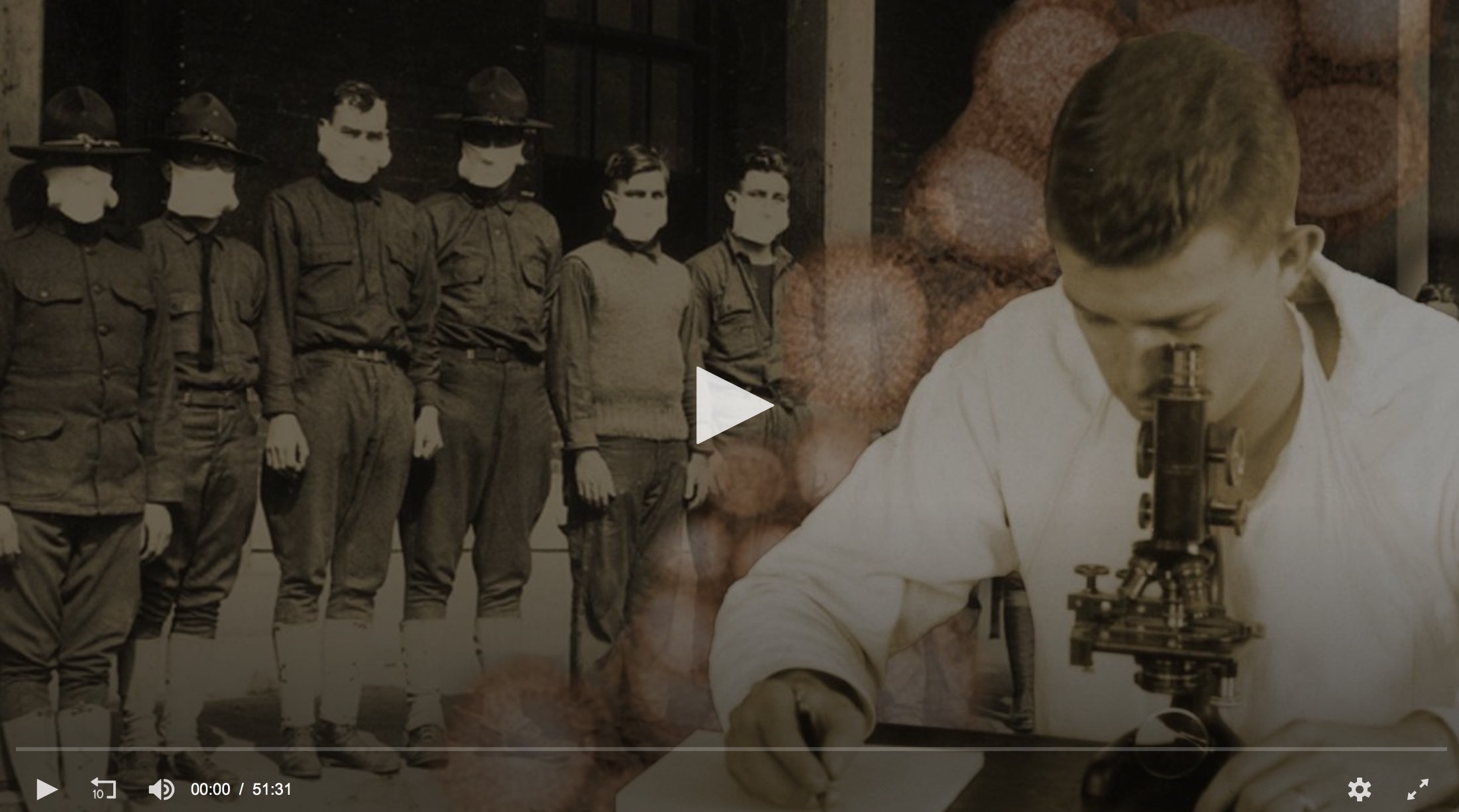
Watch "Influenza 1918," the story of the worse epidemic the United States has ever known. Before it was over, the flu would kill more than 600,000 Americans - more than all the combat deaths of the 20th century combined. For now, let us be smart, measured and helpful to each other in this challenging time. The same group panic leading to toilet paper shortages should not keep the most seriously ill from getting the care they need. Again, we are here for you. Let us know if you have any questions or concerns and take advantage of technology to stay medically connected with us to keep you healthy.
 Share Your Experience Share Your Experience
Please help get the word out about our doctors and our practice. It will only take a minute and we will be so grateful! Share your experience in our office by clicking on your cardiologist: 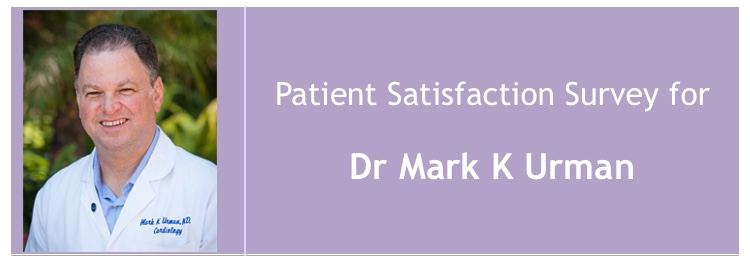
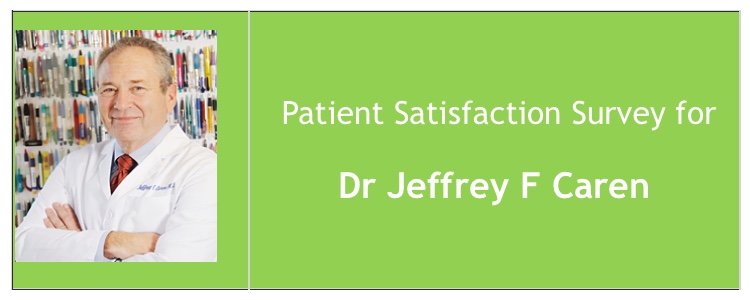
Or do you Yelp? Review your healthcare encounter with Dr. Urman by clicking here. 
 | Following a Heart-Healthy Diet and Lifestyle |
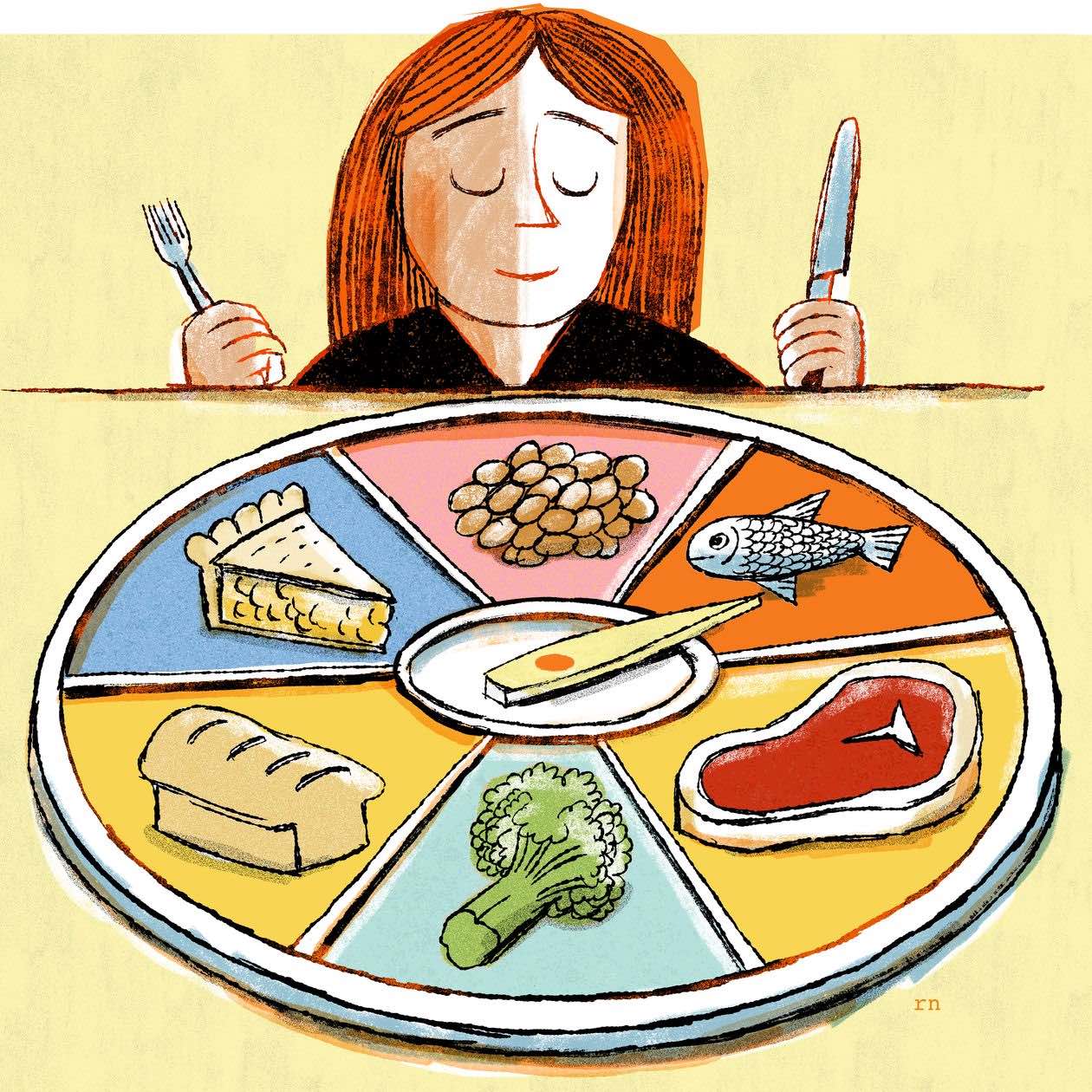
It Is not Just What We Should Not Eat, but We Actually Know What We Should Eat A common sense approach from the Wall Street Journal "If you adopt an eating pattern that has stood the test of generations, you are almost certain to be better off than with a diet introduced as breaking news."
A Heart Attack? No, It Was the Coronavirus
Cardiologists are seeing infected patients whose worst symptoms are not respiratory, but cardiac Click here to read more (New York Times) How the Coronavirus Attacks Your Body
Click here to read more about what scientists know so far about how Covid-19 progresses inside the body (Wall Street Journal)
|